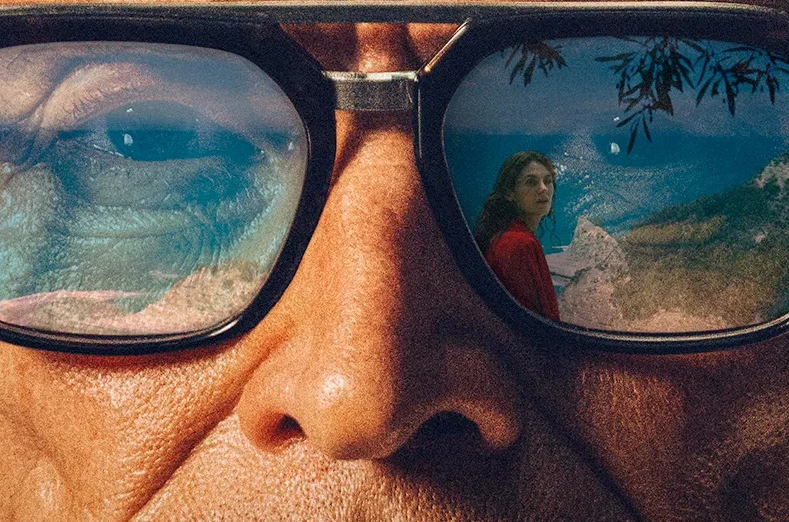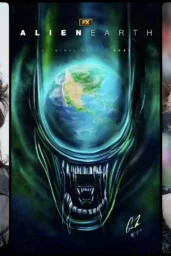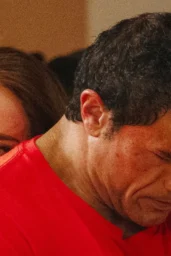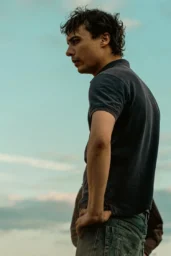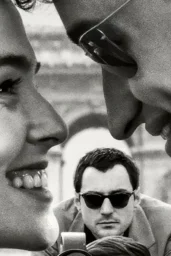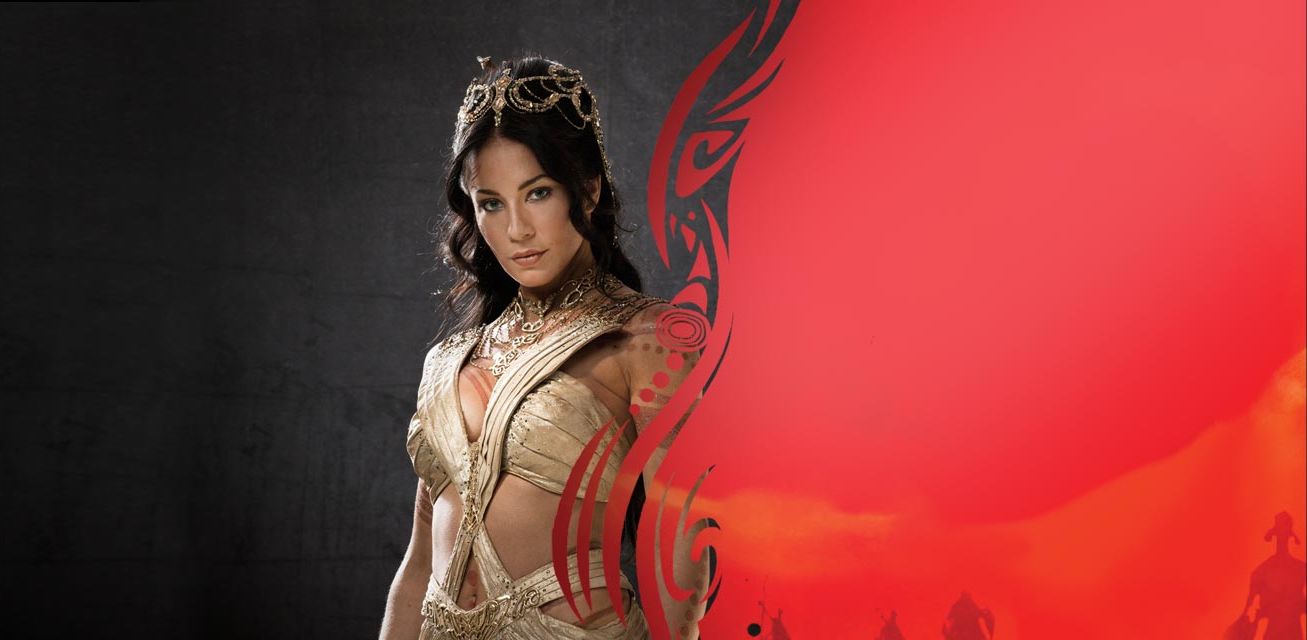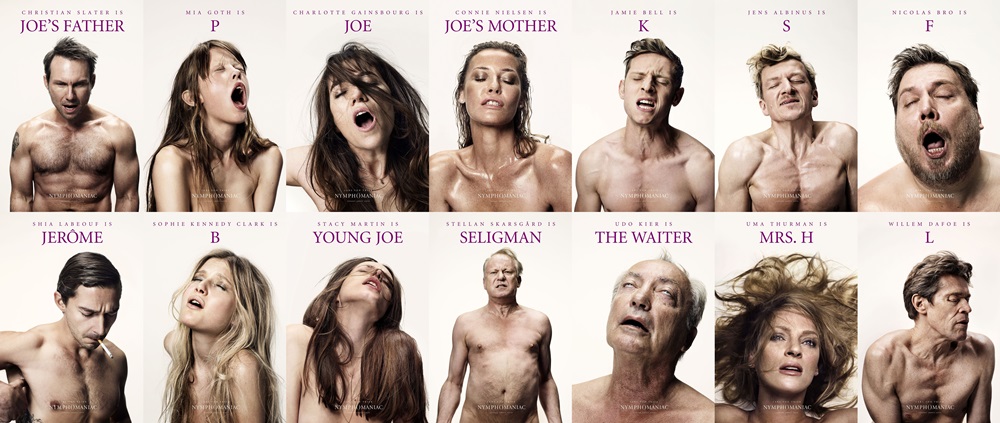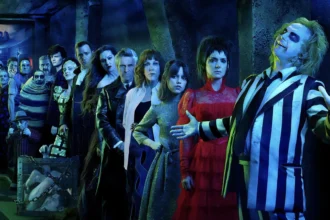You know that feeling when you walk into a room and everyone's already performing? That's what The Birthday Party feels like—the moment the camera settles on Willem Dafoe's face, sunburnt and still, wearing sunglasses that reflect an entire world he's trying to control. And then there she is—his daughter, in red, standing on rocks by the sea, framed like a vision in one lens, a ghost in the other.
This isn't just a film about a rich man throwing a party. It's about the quiet violence of legacy, the way love curdles into ownership, and how even paradise can feel like a cage if you're the one who built it.
Miguel Ángel Jiménez's latest—based on Panos Karnezis' novel—premiered last month at the 78th Locarno Film Festival, where it was selected for the prestigious Piazza Grande lineup. No U.S. release date has been set yet, but Heretic Pictures has released a festival promo trailer and official poster to drum up interest—and frankly, they don't need much more than this image to make you uneasy.
Dafoe plays Marcos Timoleon, a character clearly modeled after Aristotle Onassis: wealthy, ruthless, mythic in his own mind. He's hosting Sofia's (Vic Carmen Sonne) 25th birthday on his Mediterranean island—a place so opulent it looks like a dream, until you notice the cracks. The guests arrive with agendas. The music swells. The wine flows. And somewhere beneath it all, something breaks.
Jiménez, known for films like Seagull and Window to the Sea, doesn't build tension through action. He builds it through silence. Through glances. Through the weight of a single breath held too long. This is not a thriller in the traditional sense. It's more like a horror film stripped of jump scares—what's terrifying here is the realization that you've been trapped in someone else's narrative your whole life.
And Dafoe? He's not acting—he's becoming. There's a stillness to him that's almost supernatural. You can see every decision he's ever made in the lines around his eyes. In the way he holds his jaw. In the reflection of his glasses, where the world outside seems both beautiful and unattainable.
I watched the trailer twice. First time, I thought: “This is going to be pretentious.” Second time, I thought: “No. This is precise.”
The aesthetic—late '70s Mediterranean glamour, golden-hour lighting, vintage fashion—feels like a fever dream from a forgotten era. But the real story is in the subtext. Sofia, the only heir, is coming home with news. What happens when the person you've shaped into a symbol starts to resist? When the empire you built begins to crumble because of the one thing you never controlled?
The poster says it all. Dafoe's face dominates—close-up, powerful, unblinking. But in his sunglasses, we see Sofia, small, distant, standing on rocks. She's not part of his reflection. She's outside it. A reminder that no matter how much he tries to contain her, she belongs to herself.
And the tagline? “You're cordially invited to the party of the year.” So polite. So inviting. So deadly.
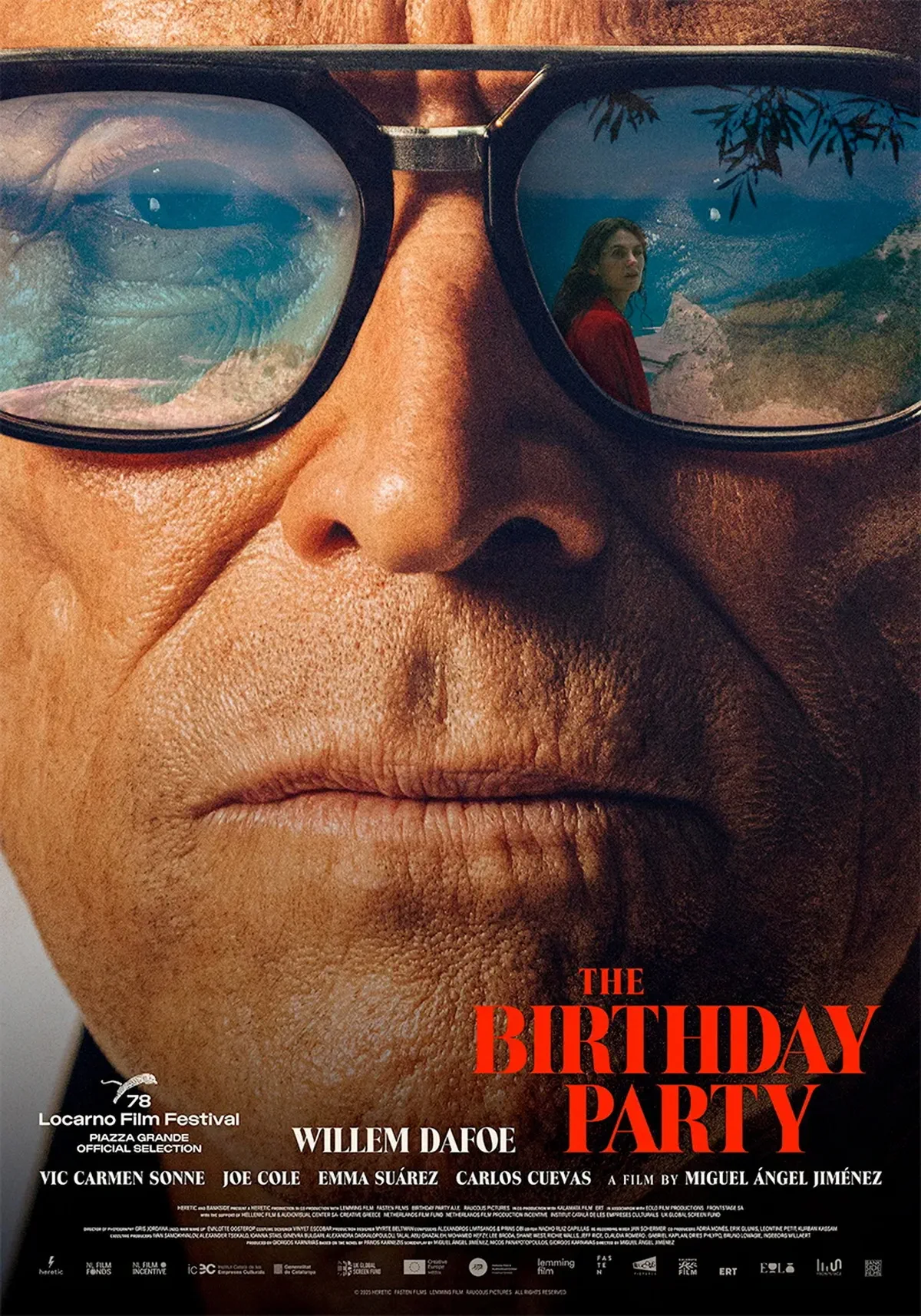
There's something quietly devastating about the idea that the most dangerous parties aren't the ones with guns or drugs—but the ones where everyone knows what's at stake, and nobody dares to speak.
I'm not sure if The Birthday Party will find a wide audience. It's too slow, too introspective, too quiet for mainstream tastes. But that's exactly why it matters. In a world obsessed with spectacle, this film dares to ask: What happens when the show stops?
We'll have to wait and see if distributors take the bait. For now, though, the film has found its voice—at Locarno, in the shadows of the Mediterranean, and in the mirrored lenses of a man who thinks he owns everything… until he doesn't.
5 Big Things We Learned from The Birthday Party Poster and Trailer
Willem Dafoe is playing a titan of wealth and ego
He's not just acting—he's channeling the aura of a man who believes he's above consequence, a modern-day Onassis with a death grip on legacy.
The island is a prison disguised as paradise
That lush, sun-drenched setting? It's not a vacation spot. It's a gilded cage, and the only escape route is through confrontation.
Sofia's presence in the reflection is symbolic
She's literally outside his world—seen but not seen, heard but not listened to. A daughter as mirror, not as heir.
The film leans into psychological tension, not action
No explosions. No chases. Just people talking, drinking, and slowly unraveling under pressure.
Locarno gave it a major platform
Selected for Piazza Grande at the 2025 festival—this isn't a hidden gem. It's a statement piece from a director who knows how to build dread.
Anyway. Where were we? Oh yeah—the unnecessary slow-mo scene. Or was it necessary? I keep going back to it. The way the camera lingers on Dafoe's hand as he picks up a glass. The way it doesn't move. The way it waits. Maybe that's the point. Or maybe not. I'm not sure anymore.
But I do know this: if you're looking for a film that feels like it's breathing, like it's alive with unease and meaning, The Birthday Party might just be the one.
Let me know what you think. Have you seen the trailer? Did the poster give you chills? Or did it just look like another flashy European art film?
Either way—stay tuned. This one's worth watching.

